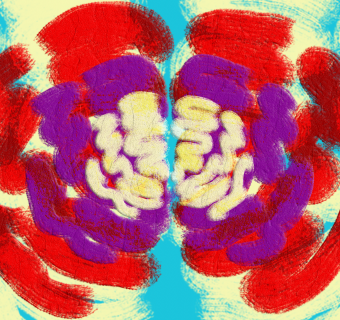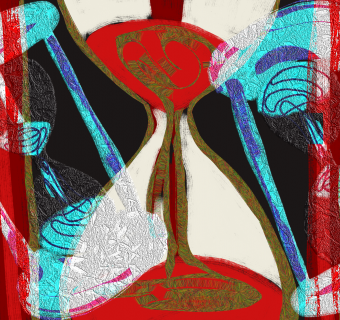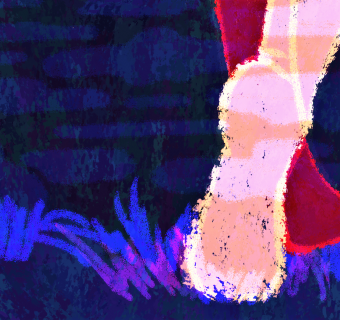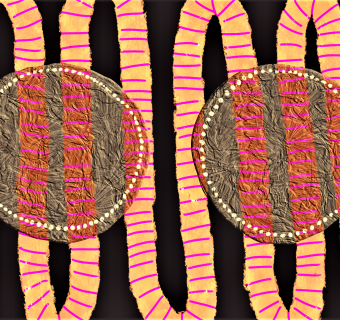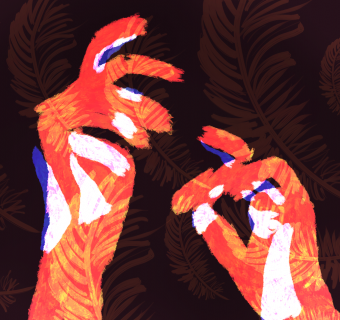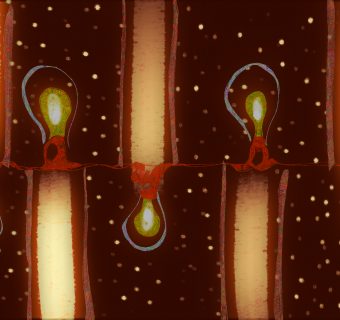These photos together comprise a portion of the exhibit Every Body, taken and curated by Iris Magazine intern Kendall Siewert. Each U.Va woman who volunteered for the project was accepted, and the photos you see below represent her vision to the best of the photographer's ability. Every woman wrote their story to accompany their photograph. A note from the photographer: I do not consider myself a photographer or an artist. I am a storyteller. My conviction that every body has a story worth telling, and my desire to somehow share these stories with others is how this project was born. Each woman you see below showed immense vulnerability and bravery, many opening up their most intimate thoughts to a complete stranger, some of them for the first time. I am just the messenger of these stories. I did little but listen, point and shoot. So, to these deeply remarkable women - thank you for telling your stories, and to everyone reading this - thank you for listening. I would also like to thank the entire Iris Magazine team, especially Alison Kuhn and Olivia Knott, along with The University of Virginia, Maxine Platzer Lynn Women's Center for their unwavering support. An additional deserving thanks goes to my roommates Emilie Mills and Nikki Russell, who sat in the photo studio for hours holding lights, and Amanda Davis, who taught me that sometimes all it takes to hear a story is simply to ask. This gallery is dedicated to my grandmother, because within it you will find the whole of my heart.
Editor's note: The follow-up to this project, UVA Men Tell Stories of Their Bodies Through Photographs, was published in April 2016.
YASMIN
My scar is a reminder of my strength. It does not take away from my beauty, but it is a facet of it. I earned this scar when my body was the most vulnerable. It is a reminder of how precious life is and how it can be taken away at an instant. I have learned to accept my scar and have learned to appreciate its rigid beauty. My scar on my arm is a physical reminder of the destructiveness of drunk driving, but the psychological scar of my accident remains invisible to the world.
ARRIETTA
 I was in a long-term abusive relationship that really affected the way I felt about myself. Because of the ongoing psychological and emotional abuse, in addition to other forms as well, I was not allowed to feel good about myself or be in control of my personal decisions. Now that I'm out of the relationship, I am able to decide how I want to feel about myself, and I've really been able to come to a place of self-love. I'm not afraid to share myself with others anymore, and I've been able to realize that I deserve love from myself and others.
I was in a long-term abusive relationship that really affected the way I felt about myself. Because of the ongoing psychological and emotional abuse, in addition to other forms as well, I was not allowed to feel good about myself or be in control of my personal decisions. Now that I'm out of the relationship, I am able to decide how I want to feel about myself, and I've really been able to come to a place of self-love. I'm not afraid to share myself with others anymore, and I've been able to realize that I deserve love from myself and others.
OLIVIA
Makeup has always been something I loved; there's something so artistic and expressive about it. But I've never felt as though it was something I needed to have on to face the world. Maybe it's because I was raised in such a body and beauty positive environment, but I've always felt comfortable with my bare face. If someone minded, they weren't worth my time. I truly believe a smile is all you need. My biggest struggle with my body is definitely being so tiny, and hearing from people how much it must suck to "not have a woman's curves." But I came to love my body for how it is: athletic and, more importantly, mine. Of course I'll always have a little insecurity about it, but I don't let that run my life. I'm happy with myself. I feel like this photo encompasses that. Bare-faced, hair wild, pint-sized, and happy.
KARA
My first year of college, everyone kept asking me if I’d lost weight, assuming that school must have been going so well. In reality, nothing was going well. I barely slept, bathed, or left my dorm room. Eating happened even more scarcely. It became a physically impossible task for me. I lost fifteen pounds in my first semester as depression shrank me into a less joyful, less ambitious, less functional version of myself. Despite the darkness I felt every moment of everyday, others saw (what they deemed) the “prettier” version of me. They gushed with compliments and raved about my new body. They were unknowingly complimenting me on my starvation and my depression. There’s nothing self-explanatory about appearance.
ZOE
 In gender studies classes we talk about the male gaze, and I get it. I get it when I walk down the sidewalk and feel myself being looked at. But to me, the female gaze has always felt more powerful and judgmental. Girls are constantly analyzing each other's appearances, and judging each other on how they present themselves to the world. Maybe it's because I am not interested in men, but I have always felt the pressure of the female gaze much more strongly. The male gaze is simply an annoyance to me. The female gaze can make me cry. Every time I leave the house I am looked at. Nobody explicitly taught me this, but it is something that I learned growing up. I am always wondering how people see me. This moment is about how I see myself.
In gender studies classes we talk about the male gaze, and I get it. I get it when I walk down the sidewalk and feel myself being looked at. But to me, the female gaze has always felt more powerful and judgmental. Girls are constantly analyzing each other's appearances, and judging each other on how they present themselves to the world. Maybe it's because I am not interested in men, but I have always felt the pressure of the female gaze much more strongly. The male gaze is simply an annoyance to me. The female gaze can make me cry. Every time I leave the house I am looked at. Nobody explicitly taught me this, but it is something that I learned growing up. I am always wondering how people see me. This moment is about how I see myself.
RAWDA
Calling me oppressed is the easiest way for people to feel like saviors, turning my body into an object of pity that stems out of their ignorance. But I am already liberated. I have taken ownership of my body. I decide to show you what I want to show you; to me, that is ultimate freedom. Yet I know Muslim women as well who allow their body to take ownership of them − they want to be skinny enough to look small in loose clothing and curvy enough to show a hint of what they're protecting. There are suffocating standards for the covered woman as well, causing them to lose their freedom yet again.
MADISON
 Growing up as a twin, one of the first questions I’m asked is, “do you look the same?” or “are you identical?” It was difficult for me to build my own sense of self since I was always seen as “the twin.” I went through a lot of struggles with my own body, especially with acne, which was exacerbated by the constant comparison to my sister. Often, it felt like a competition to be the “prettier twin,” but I felt as if I was always losing because of my acne, my weight, and my other insecurities. I have a lot of scars both internally and externally as a result of this comparison. But now I’m so proud to say that these are my scars, no one else’s. I am unique even as a twin. And to answer the question, we don’t know if we’re identical, and we don’t care. (P.S. I love you, Payton)
Growing up as a twin, one of the first questions I’m asked is, “do you look the same?” or “are you identical?” It was difficult for me to build my own sense of self since I was always seen as “the twin.” I went through a lot of struggles with my own body, especially with acne, which was exacerbated by the constant comparison to my sister. Often, it felt like a competition to be the “prettier twin,” but I felt as if I was always losing because of my acne, my weight, and my other insecurities. I have a lot of scars both internally and externally as a result of this comparison. But now I’m so proud to say that these are my scars, no one else’s. I am unique even as a twin. And to answer the question, we don’t know if we’re identical, and we don’t care. (P.S. I love you, Payton)
KENDALL
Some people assume because of my outward appearance that I am too fragile for the career I want – to be a military trauma surgeon. They shake my hand and encircle my wrist with their fingers and remark how tiny, how small, how quaint it is. When people make you feel this small it’s hard not to focus on it and feel limited within the confines of your own body. I’ve come to accept the vulnerability I present as a strength, not a weakness. It takes a lot to present yourself as you are, to be proud of your body as it is. An outward appearance of fragility doesn’t mean a frail spirit or a lack of strength. If anything it means the complete opposite, because for every ounce of doubt people weigh you down with skepticism you have to match it with a pound of determination and resilience.
ANNE
The person I was then and the person I am now are both beautiful. Although I don't have the figure I once tore myself apart to achieve, I've never felt healthier, happier, or more in love with my body. My latest challenge however, has been to embrace my sexuality, see myself as attractive without needing an outsider’s approval. Every time I start to dress up and channel my inner sex-goddess, I take one look in the mirror and feel so silly I throw on a big flannel and beanie to cover up my ever-so-scandalous bare midriff and upper thighs. I love my classic tomboy style, but I think it’s about time to feel confident in my naked skin, because I am sexy. It’ll be a while before I feel comfortable saying that out loud, but lately I’ve been making some pretty good progress.
JORDAN
 Self-harm, for me, was never about killing myself or about getting attention as many have assumed. It’s about reducing the stress, pain, and anxiety to a level that allows for a clearer vision of reality, even if that clarity may be short-lived. Struggling with self-harm during my academic career at U.Va, my physical body quickly became a personal billboard of inward turmoil. From my vantage point my legs read 'cut' on the left and 'die' on the right, because cutting so often can feel like the only way to expel the pain inside long enough to see that I'm worth it, that my life is worth it. But the reality is that I was worth it before I ever knew it, before this war waged on my skin ever began. I always have been and always will be worth it, which means this war has to end - it no longer has to continue.
Self-harm, for me, was never about killing myself or about getting attention as many have assumed. It’s about reducing the stress, pain, and anxiety to a level that allows for a clearer vision of reality, even if that clarity may be short-lived. Struggling with self-harm during my academic career at U.Va, my physical body quickly became a personal billboard of inward turmoil. From my vantage point my legs read 'cut' on the left and 'die' on the right, because cutting so often can feel like the only way to expel the pain inside long enough to see that I'm worth it, that my life is worth it. But the reality is that I was worth it before I ever knew it, before this war waged on my skin ever began. I always have been and always will be worth it, which means this war has to end - it no longer has to continue.
SYDNEY
To me, my body represents a duality between strength and vulnerability. For as long as I can remember, I have participated and taken pride in athletics and exercise. This interest is fueled by a number of things like physical health, aesthetics, and mental health. My driven and tough physicality often serves as a facade for my struggle with anxiety, while the physical activity itself helps alleviate a lot of my inner tension. This photo showcases strength and vulnerability that are simultaneously masked yet revealed through my physical activities.
MAYURA
I was constantly complimented for having fair skin as a child, but with each passing summer my skin became darker and darker. I hated how dark my skin had gotten, and I hated how hairy my eyebrows, my legs, my arms were compared to my friends', and all I wanted was to not constantly feel self-conscious about my hair, and to have skin that was one or two shades lighter. My Indianness, my brownness, was not something that I saw as beautiful. It's taken a long time for me to feel comfortable in the skin I'm in today.
KATIE
 I thought 15 years of being exhausted, stiff, and self-conscious of my weight was finally going to be over after I had surgery sophomore year to remove my thyroid. But when I woke up, I was paralyzed from the anesthesia. Later I found out my thyroid was cancerous and I had to go through a special type of radiation called radioiodine therapy. I felt so weak for so long. But now that it's done, I have this scar running across my neck - out for the world to see and judge and question. I'm proud of my scar, which is why I love this photo, but it also makes me flinch every time I look in the mirror because I know strangers see the same thing I do, but without any of the context. It makes me feel nervous and judged. It is this duality of knowing all my body has been through yet realizing others do not that influences my self-perception.
I thought 15 years of being exhausted, stiff, and self-conscious of my weight was finally going to be over after I had surgery sophomore year to remove my thyroid. But when I woke up, I was paralyzed from the anesthesia. Later I found out my thyroid was cancerous and I had to go through a special type of radiation called radioiodine therapy. I felt so weak for so long. But now that it's done, I have this scar running across my neck - out for the world to see and judge and question. I'm proud of my scar, which is why I love this photo, but it also makes me flinch every time I look in the mirror because I know strangers see the same thing I do, but without any of the context. It makes me feel nervous and judged. It is this duality of knowing all my body has been through yet realizing others do not that influences my self-perception.
KAITLIN
I've spent most of my life living outside of the United States, and I've never lived in one place for more than four years. All this moving around has made me come in contact with so many different beauty standards and concepts of what is beautiful, but I've found that two things transcend these standards: the eyes and smile.
MELISSA
 When I was younger, I hit a much fuller figure way beyond my years. And it was hard, y'know? It was easier to be ostracized as a 12 year old sporting C cups and full thighs. All my friends would go to Claire's and nothing ever really worked out with my body type. I remember sprinting up and down my driveway holding my CD player listening to Hilary Duff in hopes of having a body like Lauren Conrad or the other it girls from some iconic show from the 2000s. The media perpetuates this stereotype that a slender body with conventional curves in the chest and booty are ideal. There's no in between, but that's simply just not the case. It's okay to have a curve or two and it's also okay to have none. What's not okay is to let women think that there's something wrong with their body because they don't mirror a Victoria's Secret model.
When I was younger, I hit a much fuller figure way beyond my years. And it was hard, y'know? It was easier to be ostracized as a 12 year old sporting C cups and full thighs. All my friends would go to Claire's and nothing ever really worked out with my body type. I remember sprinting up and down my driveway holding my CD player listening to Hilary Duff in hopes of having a body like Lauren Conrad or the other it girls from some iconic show from the 2000s. The media perpetuates this stereotype that a slender body with conventional curves in the chest and booty are ideal. There's no in between, but that's simply just not the case. It's okay to have a curve or two and it's also okay to have none. What's not okay is to let women think that there's something wrong with their body because they don't mirror a Victoria's Secret model.
CIERRA
When I was in elementary school, I noticed a large dark spot on my hip. I went to the doctor and learned that I have an extremely rare skin condition called Morphea. This disease causes painless, discolored patches on the skin. When I go to the beach or the pool, others usually ask about it and mistake it for a bruise. I constantly forget about the discoloration, because I’ve completely accepted it as a part of who I am. The skin condition isn’t something I can change, so I focus on the parts of my body that I can change. I have an athletic body type and have been an athlete all my life, so I’m regularly working out so that I can live with a body that makes me happy.
DARNISHA
Growing up with "thunder" thighs as a child was never easy. Having these big bags of fat on my short stature always made me look bigger than what my mother said I really was. Wearing shorts and skirts made me feel uncomfortable until I started to accept that this is the body that God has given me. Afterwards, there wasn't a day that went by where I wished I could trim my thighs, try to work out to make them go away, or even try to hide them under my sweatpants. Now, I strive to uplift diversity of women, in any way, shape or form, because I can relate to how it feels to be different. I have overcome the negatives, and embraced the positives and I must say, gotdamn I look good.
SARAH
My intense Irish dancing career taught me to take pride in my strong legs. When two stress fractures and academic pressures brought my dancing days to a close at age 17, I was no longer surrounded with girls whose bodies looked like mine. My confidence I had established in my figure took a hit. Finding pants that I can yank over my calves has made shopping a frustrating experience, and my muscles make me weigh more than both doctors and friends predict. Boys have commented on the size of my leg muscles with half awe, half disapproval; cultural standards projected by the media dictate that women’s legs should be toned, but by no means sculpted like mine. Despite these standards, I consciously make an effort to maintain confidence in the ability and structure of my body. My leg muscles have enabled me to express myself through an art form that is unique and fundamental to my identity. The power I find in that alone overrides the beauty of any possible cultural ideal.
WHITNEY
When I became conscious of my body, I became conscious of its width. Will it fit into these pants? Will it be seen as beautiful? Will my body be feminine enough for people to appreciate? But as I grew older, I realized I have been treating my body as the other. To me, my body was its own entity and I was observing it through the mirror like a thing on display. I objectified my own flesh and bones. In my photo, I’m thinking about my complicated relationship with my body and gender identifiers. I’m used to being mistaken for a man, and for people to be uncomfortable with my size and disposition. But I’m comfortable with myself and my body now. Only I can fit in my skin.
MEGHAN
When I was in middle school, I started noticing all the things that made me different – my fiery red hair, fair skin, and the freckles dotting my body. Around that time, I noticed I was picking at my face and pulling at my hair. I understood it was detrimental to myself, but I couldn't stop. I realized that I had Trichotillomania and Dermatillomania, which are impulse control disorders whereby the person pulls their hair (sometimes resulting in bald patches) and picks at their skin (sometimes with permanent scarring) respectively. I started suffering from depression and anxiety, and I began to self-harm. I would cut myself on my hip because I didn't want anyone to know. Now, I have a tattoo over where I used to cut − the chemical composition of Serotonin and Dopamine, the two main chemicals that control happiness in the body. I wanted a reminder of happiness where I used to be marked by sadness. My tattoo isn't perfect because it's positioned over scars, but that's what I love about it; like me, it is uniquely beautiful despite any perceived faults.
ALEXANDRA
 Sometimes I hate it when people say "I'm really positive" or "I'm a really happy person." It seems like a humble brag - "Look at me and how perfect my life is." But that's how I would describe myself, even before it happened. Before the effects of severe head trauma from a car crash made my body stop producing dopamine the way it’s supposed to. There were times where even if I knew I had every reason to be happy, I would feel like I was being dragged into the deepest, darkest pit of despair. It was like I was drowning, trying my best to stay afloat, and even though I knew exactly how to swim, my body wouldn't let me. I slipped under. I lost myself to major clinical depression. I tried to take my own life. Today, I take medication to help replace the missing chemicals in my body. Today, I’m thankful for my life. Today, I'm a really happy person. My tattoo reminds me of this. It isn't for decoration and it isn't for anybody but me. Romans 8:18. The pain you're feeling now cannot compare to the joy that is coming.
Sometimes I hate it when people say "I'm really positive" or "I'm a really happy person." It seems like a humble brag - "Look at me and how perfect my life is." But that's how I would describe myself, even before it happened. Before the effects of severe head trauma from a car crash made my body stop producing dopamine the way it’s supposed to. There were times where even if I knew I had every reason to be happy, I would feel like I was being dragged into the deepest, darkest pit of despair. It was like I was drowning, trying my best to stay afloat, and even though I knew exactly how to swim, my body wouldn't let me. I slipped under. I lost myself to major clinical depression. I tried to take my own life. Today, I take medication to help replace the missing chemicals in my body. Today, I’m thankful for my life. Today, I'm a really happy person. My tattoo reminds me of this. It isn't for decoration and it isn't for anybody but me. Romans 8:18. The pain you're feeling now cannot compare to the joy that is coming.
LAURA
In the first grade, I started compulsively washing my hands due to my fear of germs. For a while, these habits subsided, but during the latter part of middle school, my compulsions came back in the form of exercise because I obsessed about losing weight. I ran a certain amount each day; I looked at calories; I was never satisfied with my body. As I continued with my running routine and dietary habits, I also fell back on hand washing. Along with my waistline, my hands − irritated, dried, cracked − became a shameful part of me. Since entering college, I have learned not to be ashamed of my obsessive-compulsive disorder and to focus on the functions my body allows me to perform every day. This photo demonstrates how much pride I can take in my body, hands and all.
LIBBIE
My background in figure skating trained me to view my body as a well-oiled machine – efficient, powerful, and streamlined. But it also trained me to constantly compare myself to competitors. In figure skating, the thinner and lighter you are, the faster and easier you rotate – it’s physics. Unfortunately, this obsession with my figure continued long after I stopped competitively skating. It's sad: people can tell you that you're beautiful, skinny, strong, pretty, and perfect, yet that validation means next to nothing when you face an eating disorder that constantly whispers notions of self-doubt and inadequacy in your ear. Words of affirmation from loved ones always help me, but until I can look at myself in the mirror at the end of the day, after eating three full meals, and not be ashamed of my body, I still have recovering to do.
CAROLINE
 I’ve never had self-confidence in how I view my body; there was a time when I used to mistreat it, even though I knew I was hurting myself. I still get anxiety looking at myself in the mirror, but I am learning to accept myself. People in my life have treated me like my body wasn’t worth valuing, and when the same thing happened over and over, I figured I was the problem. Now I know that I am worthy of love from other people, but it’s self-love that I’m still trying to figure out.
I’ve never had self-confidence in how I view my body; there was a time when I used to mistreat it, even though I knew I was hurting myself. I still get anxiety looking at myself in the mirror, but I am learning to accept myself. People in my life have treated me like my body wasn’t worth valuing, and when the same thing happened over and over, I figured I was the problem. Now I know that I am worthy of love from other people, but it’s self-love that I’m still trying to figure out.
BROOKE
 My junior year of high school, I was more motivated than I have ever been. I was getting good grades and I had a personal trainer, all because I wanted to be a collegiate athlete and come to this amazing school. But I was soon accused of having eating disorders and being too stressed; people pitied me and sought help for me, when I had other things going on in my life. Being misunderstood is a pretty unfortunate feeling. I was just fiercely focused on myself. People are too quick to assume sometimes. And though people like to put in their two cents sometimes, I know what's best for my body.
My junior year of high school, I was more motivated than I have ever been. I was getting good grades and I had a personal trainer, all because I wanted to be a collegiate athlete and come to this amazing school. But I was soon accused of having eating disorders and being too stressed; people pitied me and sought help for me, when I had other things going on in my life. Being misunderstood is a pretty unfortunate feeling. I was just fiercely focused on myself. People are too quick to assume sometimes. And though people like to put in their two cents sometimes, I know what's best for my body.
OLIVIA
I have always been gangly − no curves, all angles. I used to be, and honestly still am, insecure about my lack of "womanly" curves. I have an aversion to anything tight; I would probably wear a floor length nightgown over a bandage dress any day. While hiding under ten layers of oversized clothing, I've actually learned a thing or two about myself. I do not have curves, and that's okay. I actually feel my most beautiful and confident when covered up, and that's okay too. Show your body, don't show your body, you need curves, no wait, you need to be stick thin − we live in a world of confusing messages about what it means to look like a woman and how we should display our bodies. I’ve learned to do what makes me feel good about mine.


















